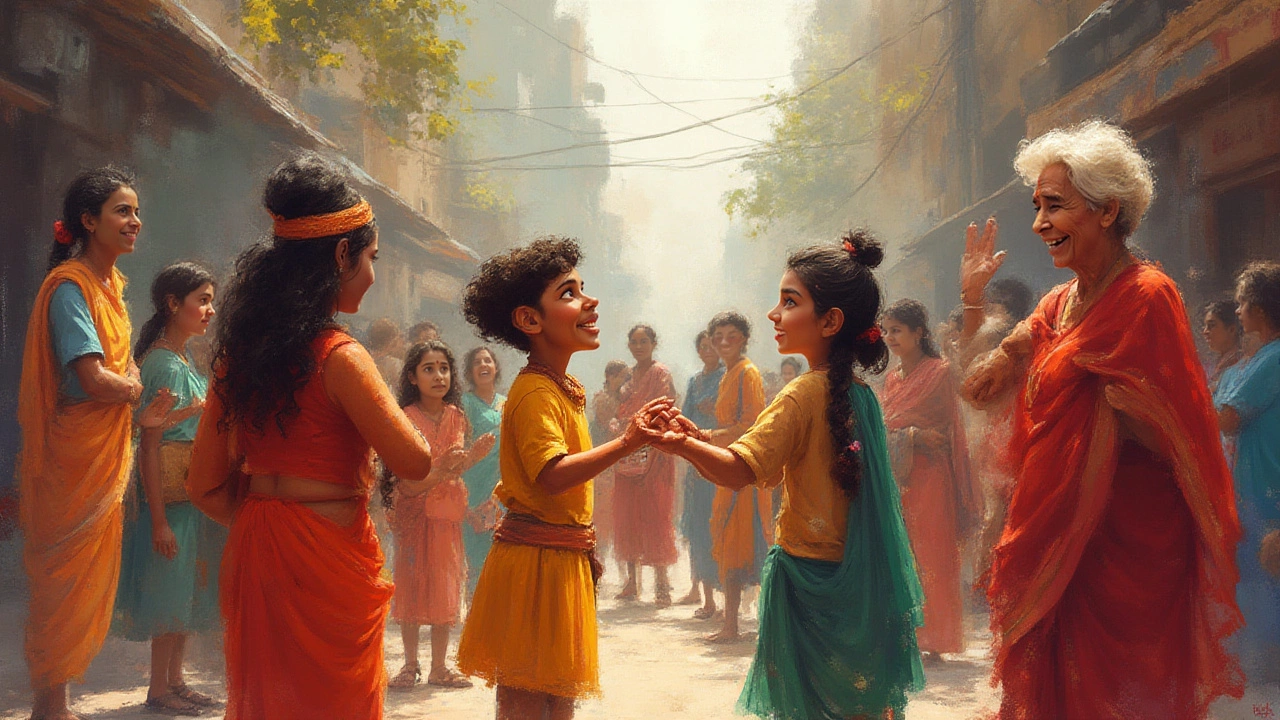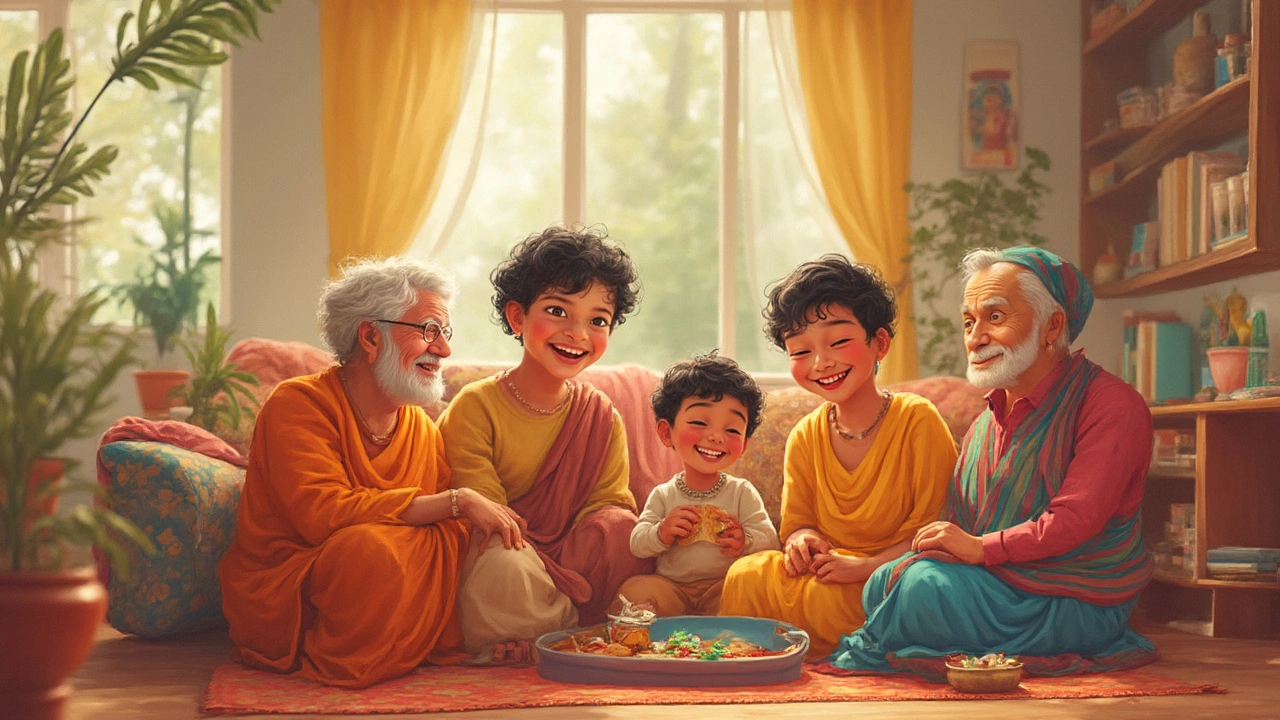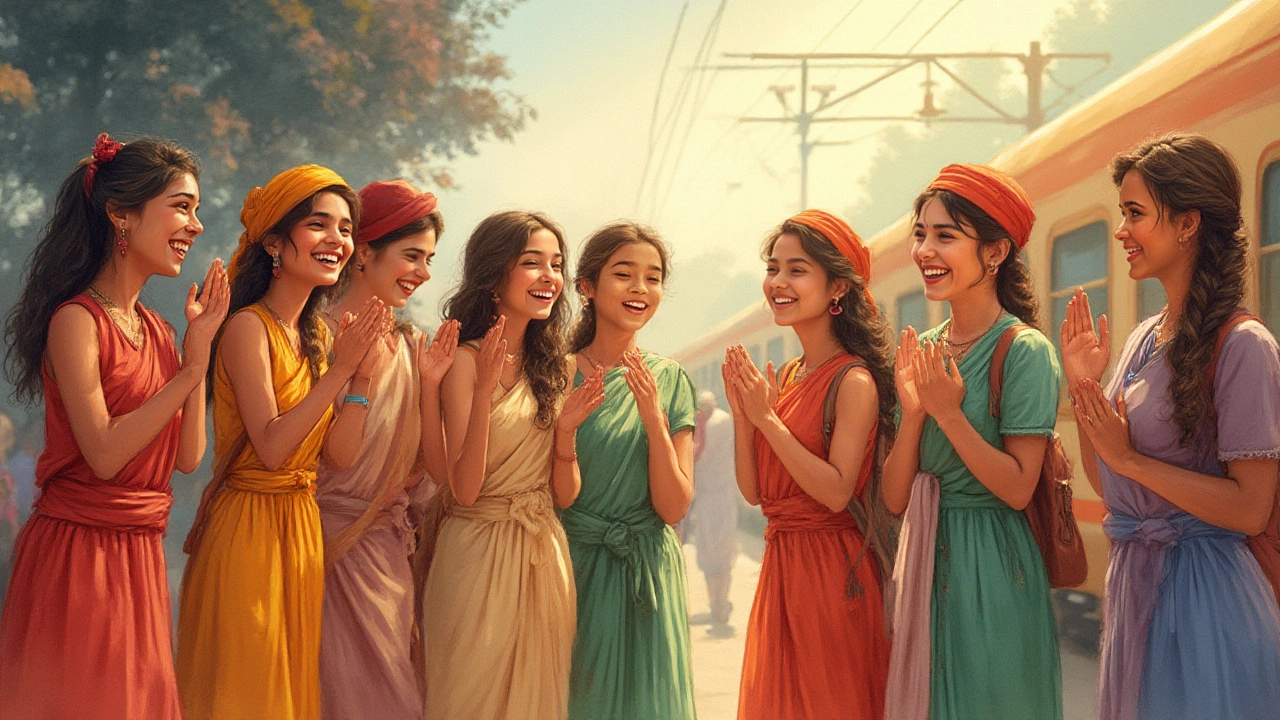Would you believe a single, two-syllable word in India could sum up the friendly charm of street farewells, the warmth of a nineties Bollywood goodbye, or the giggle-filled conversations in every playground? In the ever-changing swirl of Indian slang, “tata” slips in like a playful wink—a word that’s so much more than just a way to say goodbye. It crops up everywhere, from grown-ups wrapping up phone calls to little kids squealing at the park, “Tata, see you tomorrow!” What’s behind this word? Where did it even come from? There's more history than you might expect.
The Origins of 'Tata': Where Did This Quirky Goodbye Start?
The story of 'tata' starts well before Instagram DMs and WhatsApp stickers. While many folks assume it’s a homegrown Indianism, the word actually has roots in British English. 'Ta-ta' popped up in the 19th century in England as a childish, informal way to say goodbye—something you’d hear in nurseries and picture books. When the British colonial period rolled around, they brought not just tea, but also tons of English expressions to the Indian subcontinent. 'Tata' landed softly among the local ways of chatting, blending with Hindi, Marathi, Bengali, and even Urdu conversations. Instead of fading out after the British left, it flourished. By the mid-20th century, 'tata' had become such a staple that it appeared in Bollywood films and even All India Radio sign-offs.
Unlike the more formal 'goodbye' or traditional ways to part (like 'namaste' or 'alvida'), 'tata' has always carried a breezy, non-serious vibe. It’s a reflection of how Indians love to keep things light and affectionate, even in farewells. You’d hear grandparents calling after grandkids with a cheerful “tata beta,” or uncles waving off noisy nieces from verandahs. Modern Hindi and other Indian-language textbooks sometimes mention 'tata' specifically to illustrate how Indian English has picked up and Indianized little chunks of British lingo.
Tata in Daily Life: When, How, and Why People Use It
Walk through any Indian neighborhood and you’ll catch “tata” floating through the air. Unlike more formal send-offs, 'tata' isn’t reserved for grand gestures. It’s slipped into moments that are simple, sweet, and totally ordinary. Friends signing off after a cricket match? “Okay, tata!” Kids piling back into school buses at 3 p.m.? “Tata, miss!” Office-goers rushing to their cabs in Bengaluru’s rush hour will chuckle “Tata, see you Monday!”
One interesting thing is how the word crosses age, region, and even language. Engineers headed home in Pune use it. Aunties running vegetable stalls in Kolkata use it. Little ones learning English in Delhi’s schools use it as their first ‘goodbye’—sometimes before they even utter ‘bye’. It slots nicely into Hinglish (the blend of Hindi and English that dominates Indian urban speech), but it’s just as common in pure English, or even woven into local tongues: “Tata, kal milte hain,” meaning “Tata, see you tomorrow.”
This easy tone has made ‘tata’ the go-to for less dramatic farewells. It’s never cold. You won’t use it to end a friendship, but you’re guaranteed to hear it during a lazy Sunday as friends set off on their scooters after chai and samosas.

Tata and Pop Culture: From Bollywood to Memes
‘Tata’ isn’t just sidewalk slang. It’s part of India’s pop-culture fabric. Remember that iconic scene in the 1998 movie “Kuch Kuch Hota Hai,” where Anjali waves a teary “Tata!” as she boards a summer camp bus? Bollywood loves giving ‘tata’ the melodramatic touch. In animated Indian kids’ shows like “Chhota Bheem”, you’ll catch cheerful “Tata!”s echoing as characters dash off on new adventures. Even comedians riff on the word, poking fun at how it can sound sweet or downright silly depending on who says it.
The Internet hasn’t missed out, either. As reels, memes, and TikTok clips from India have gone viral, ‘tata’ often pops up in punchlines—think funny pets in quick exit videos captioned “Tata, bbye!” and actors lip-syncing elaborate “tata” farewells. The word also pops up in English-speaking Indian communities abroad. Diaspora parents in London or New York giggle when their kids say “tata!” to classmates, a little nod to home.
Big businesses have leaned into the playful branding power of the word too. (But here’s the twist: while the famous Tata Group conglomerate shares the name, they're totally unrelated!)
Is 'Tata' Used Across India? Regional Quirks and Similar Expressions
The beauty of 'tata' is how adaptable it is. You’ll hear it in Mumbai as often as in Guwahati or Chennai. Each part of the country still has its own flavor, though. Down south in Bengaluru or Chennai, Tamil speakers may slot ‘tata’ next to “poitu varein” (I’ll be back), giving farewells a blend of old and new. In Punjab, you might hear “Tata, rab rakha!” which mixes ‘tata’ with a traditional blessing. Bengali friends jabbering at a sweet shop? “Accha, tata!” slips naturally between sips of chai.
Other Indian languages have their own casual goodbyes, but 'tata' is uniquely cross-lingual. Compare it to “chalo” (let’s go), “phir milenge” (we’ll meet again), or “bye bye” (another English import). If you look at scripts, people sometimes write it as “टाटा” in Hindi, or “ટાટા” in Gujarati. But the sound doesn’t change: it’s always bright and quick.
| City | Common Casual Goodbye |
|---|---|
| Mumbai | Tata |
| Delhi | Bye, Tata |
| Bengaluru | Tata, Poitu varein |
| Kolkata | Tata, Accha |
| Chennai | Tata |
| Ahmedabad | Tata |
One fun fact: even though grownups use ‘tata’ with each other, many Indians also find it delightfully childlike. Using ‘tata’ with an elderly neighbor or your boss would usually add a hint of affection or irony.

Tips for Using 'Tata' Like a Local
Want to sound like you know your way around casual Indian slang? Just throw in “tata” the next time you wrap up with friends or neighbors; you'll fit right in. Still, there are a couple of things to keep in mind. First, don’t use it in a super-formal setting — “tata” is meant for laughs and warmth, not for farewelling your professor, your boss at a boardroom meeting, or, say, a wedding panel discussion.
Mix and match with other slang. Here’s how to keep it natural:
- Pair it with a quick wave. Indians love nonverbal goodbyes—even just the classic hand wave or a head nod.
- Blend 'tata' with local phrases: “Tata yaar, milte hain.” (Bye buddy, see you later.)
- If you want to tease, say “Tata, bbye!” in a sing-song tone just like Bollywood stars.
- Don't overthink spelling. 'Tata,' 'ta-ta,' and even 'tataaa' all work.
- It’s fine to use with kids and peers, and even with grown-ups you’re close to. With elders, just make it playful and respectful.
- Steer clear of ‘tata’ in written business emails or government offices—just stick to standard goodbyes.
If someone says ‘tata’ to you, a grin and a backwards “Tata!” reply gets you instant friendly points. Don’t be surprised if people say it spontaneously, in malls or at chai stalls. Indians often use it to stretch out goodbyes—people say “tata” but then stick around chatting for five more minutes, part of the country’s famous never-ending farewells.
Another tip: sometimes ‘tata’ pairs up with a quick hand wave or even the classic “see you, bye!” in English. It makes conversations warm and lightly humorous. Oh, and you’ll spot it on WhatsApp and Instagram captions galore. From candid snaps (“Running late, tata Mumbai!”) to cute couple posts (“He said tata but never left”), it’s everywhere.
Trying it out is simple. Next time you’re among Indian pals, swap “bye” for 'tata' at the end of your chat. Watch the little spark of recognition and smiles it brings. Tata meaning isn’t just about parting—it’s about carrying a piece of friendliness wherever you go.
